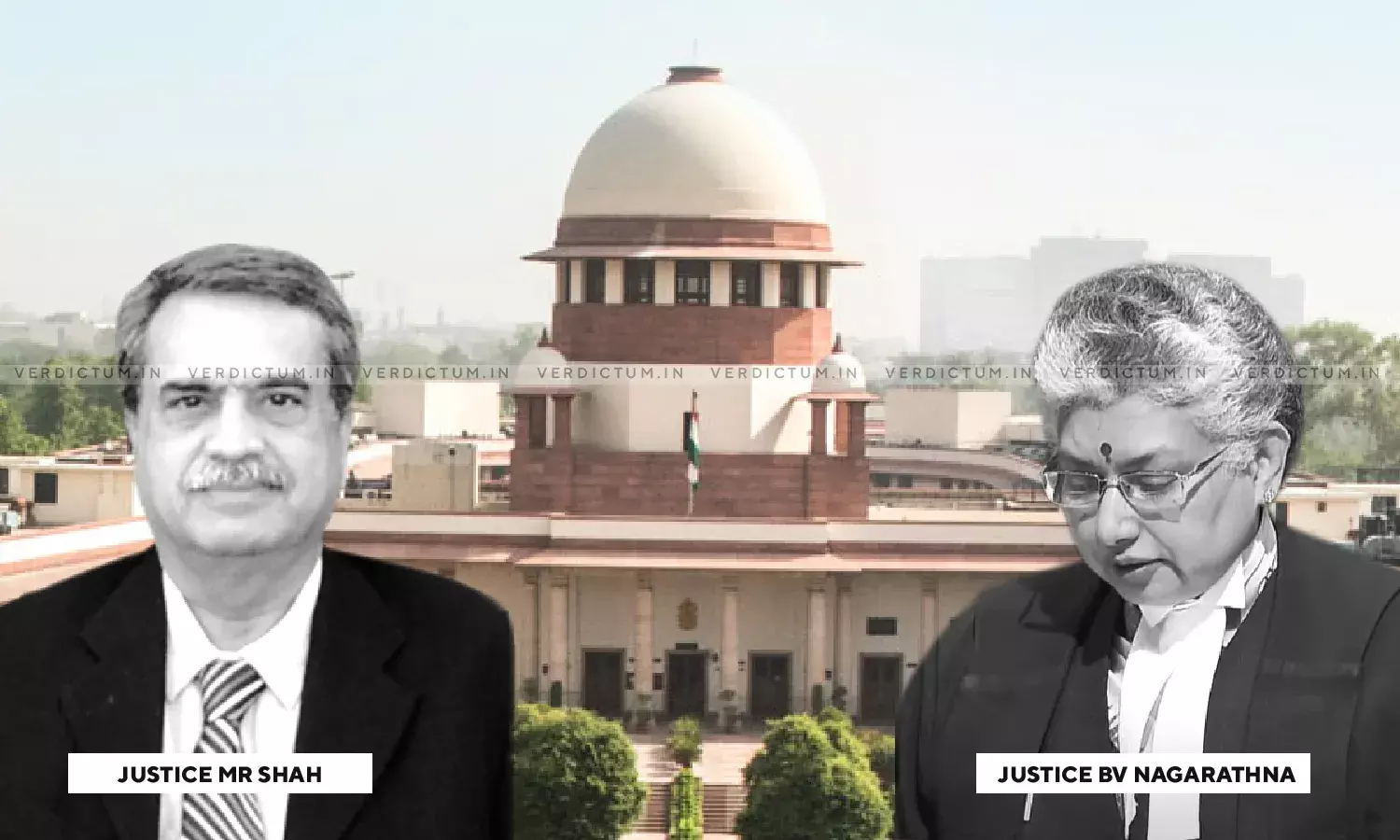High Courts Cannot Set Aside Well-Reasoned Order Only On Grounds Of Sympathy And Sentiments - Supreme Court

A Supreme Court Bench of Justice M.R. Shah and Justice B.V. Nagarathna dismissed a judgment passed by the Madras High Court regarding disciplinary action taken due to huge monetary fraud by a Postal Assistant.
The Bench while relying on various precedents observed that the High Court cannot set aside a well-reasoned order passed by the Disciplinary Authority only on sympathy or sentiments.
Additional Solicitor General of India Balbir Singh represented the Appellant side.
The Respondent used to serve as a Postal Assistant, and he committed fraud of a large sum of money. This fraud came to light, and thereafter, the Respondent deposited the amount defrauded and penal interest. During the departmental inquiry, the Respondent admitted to the fraud, and the Disciplinary Authority imposed the penalty of removal from service.
The Respondent challenged the order of removal before the Central Administrative Tribunal. The Tribunal partly allowed the application and modified the order of punishment from removal from service to that of compulsory retirement, on the grounds that he deposited the entire amount involved and no loss was caused to the department. Additionally, the Tribunal also noted that in 39 years of service, the delinquent officer had not suffered any other punishment.
Aggrieved by the modification of the order by the Tribunal, the department preferred a Writ Petition before the High Court. The High Court dismissed the petition and hence the department preferred the appeal before the Supreme Court.
The ASG argued that the Tribunal and the High Court should not have interfered with the order passed by the Disciplinary Authority. He contended that they showed undue sympathy, especially since the officer committed such a large fraud. He argued that 39 years of service and depositing the entire amount after the fraud was detected cannot be grounds to interfere with the conscious decision taken by the Disciplinary Authority to remove the officer from service.
The Counsel for the delinquent officer contended that cogent reasons were assigned by the Tribunal while modifying the punishment and the High Court rightly did not interfere. Arguing on merits, the Counsel stated that since the officer deposited the entire amount even before the departmental inquiry was initiated and that the officer had a long service career without any punishment, the officer should get retiral/pensionary benefits, which the officer would not get on the order of removal from service.
The Supreme Court reviewed and applied the law laid down in a catena of judgments, and found that the order passed by the Tribunal and confirmed by the High Court is unsustainable. It opined that the Tribunal and High Court have not found any irregularity in conducting the departmental inquiry. To that end, it held that "Once, a conscious decision was taken by the Disciplinary Authority to remove an employee on the proved misconduct of a very serious nature of defrauding public money, neither the Tribunal nor the High Court should have interfered with the order of punishment imposed by the Disciplinary Authority, which was after considering the gravity and seriousness of the misconduct."
The Bench also opined that the Tribunal and High Court have not considered the gravity and misconduct committed by the delinquent officer. 39 years of service without punishment and voluntarily depositing the defrauded amount cannot be a ground to interfere with the order the Disciplinary Authority.
Holding that the Tribunal and the High Court exceeded their jurisdiction by interfering with the punishment imposed by the Disciplinary Authority, the Bench said that "Merely because subsequently the employee had deposited the defrauded amount and therefore there was no loss caused to the department cannot be a ground to take a lenient view and/or to show undue sympathy in favour of such an employee. What about the loss caused to the department by way of goodwill, name and fame of the department and its reliability amongst the public? By such a misconduct/act on the part of the delinquent officer, the reputation of the department had been tarnished. Therefore, in the facts and circumstances of the case, both, the Tribunal as well as the High Court have exceeded in their jurisdiction in interfering with the quantum of punishment imposed by the Disciplinary Authority and to substitute the same to that of compulsory retirement."
Therefore, the Supreme Court quashed and set aside the order of the Central Administrative Tribunal and restored the order passed by the Disciplinary Authority imposing the punishment of removing the delinquent employee from service.
Click here to read/download the Judgment

